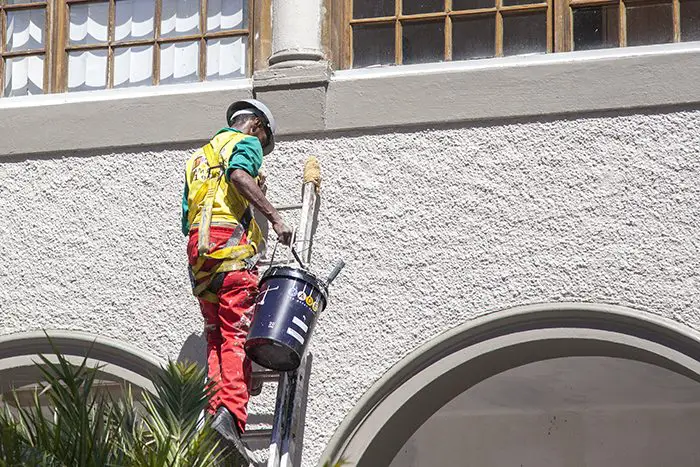The year 2015 ended on somewhat of a downer with outlook of South African construction industry being downgraded to a notch above “junk” status, a precarious position for the country’s investor confidence. With the socio-political environment in South Africa equally in a volatile state, the economic future in 2016 remains, at best, relatively unstable. So how does this affect the remedial construction industry and the investment in property maintenance?
Same challenges
According to construction, painting and waterproofing company, Indawo, 2016 will carry forward some challenges as the country fights an upward trend in interest rates that kicked off late in 2015, the downgrading of the country’s economic outlook by Standard and Poor’s and Fitch and the deterioration of the Rand against all major currencies, reaching record lows in December and continuing its downward trend in January of the new year. On top of this, our country’s debt position remains a threat, generally not an ideal position for a growing economy.
Indawo managing director, Geoffrey Jäck, says, “The construction industry, as a whole, is a key role player in the upliftment of the socio-economic conditions of our country due to the role it plays in providing significant employment. Keeping communities employed is one of the major challenges facing the industry as it strives to keep its staff at work. As a consequence business owners need to find the positives and maintain an environment conducive to job-creation.”
With 2016 promising enormous challenges, associated industries within construction may have to be flexible in their approach to the year. Pressure will remain on pricing structures as home and building owners buckle under the increased financial burden they face. Uncertainty still remains on possible further interest rate hikes in the first quarter of the next fiscal, exacerbated by the pressure on the local economy.
Owners of sectional title homes, for example, are already stretched to the limit and the recent interest rate shock put a dampener on the festive season. Maintenance plans may have been put on a temporary hold as managing agents renegotiate special levies and, in all probability, extend deadlines to raise the required budgets.
On the back of lower than expected economic growth, construction related businesses face similar challenges. The volatility of the fuel price affects transport, which has far-reaching consequences on costs, driving up prices to clients. Suppliers to the industry pass on increased costs to main contractors. Contractors, to a certain extent and to maintain client relationships, absorb these costs but ultimately this will not be sustainable.
Jäck says the 2016 challenges for associated construction industries means that flexibility will be a key success factor. Productivity will be in the spotlight together with cost-saving structures to ensure that the burden on home and building owners is cushioned somewhat.
Power problems
Uncertainty remains in South Africa about load shedding and now water restrictions due to the dry 2015 season. This adds to the challenges facing industry in the next 12 months and while some companies have invested in generators, many will still have to deal with the potential restrictions forced on them through interrupted power supplies.
This being said though, Jäck says that, in effect, the show must go on, as it were. South Africa has proven to be resilient in tough times and 2016 should see this fighting spirit continuing. This will go a far way in building local confidence and to keep our economy in the fight. For the remedial construction industry and construction as a whole, South Africa is still showing signs of stability, but the battle is a tough one.
“Crucial in all building management strategies is to keep up with regular maintenance,” says Jäck, “especially in tough economic times, as this not only ensures continued upward trends in value of investment, it minimises the extrapolated cost of repairs in the future due to neglect or putting off maintenance tasks until the economy picks up again.”

